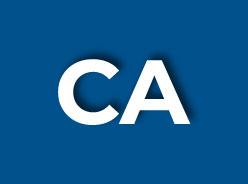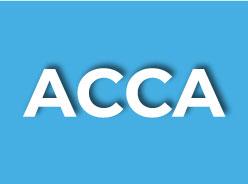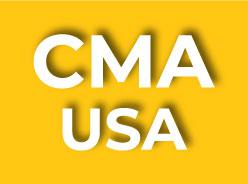A detailed understanding of the ACCA syllabus is very essential for any candidate who is willing to learn ACCA or is already in to upgrade the career with the prestigious qualification. The curriculum or the syllabus will get updated by the global body ACCA so it is very essential to update yourself with all the information about the course
The qualification comprises three progressive levels and different subjects in each level: Applied Knowledge, Applied Skills, and Strategic Professional, each level has a set of exams all tied together with hands-on practical experience expectations to attain the professional qualification.
This program goes the extra mile by providing flexible study choices, such as full-time, part-time, and online, to meet the diverse needs of its global student community. Moreover, the flexibility extends to exam attempts, as there's no group system hindrance.
Detailed Analysis of the ACCA Syllabus:
Applied Knowledge Level:
In Applied Knowledge, you grasp how accounting fits into the business world and learn the hands-on skills expected of a business accountant. The first level on your journey to becoming an ACCA professional comprises three papers:
Business Technology:
In this paper, you dive into the basic principles of business and how they blend with today's technologies. It's like building the foundation for a solid grasp of how businesses work in today's world. The paper is called BT Shortly and is known as the F1 paper of the ACCA curriculum.
Management Accounting:
While attempting this paper you'll grasp essential principles and learn the skills needed to make decisions that truly benefit your organization. It's all about empowering you to make a positive impact through thoughtful choices. The paper is called MA Shortly and is known as the F2 paper of the ACCA curriculum.
Financial Accounting:
With this paper, you learn the basics of managing money wisely. We explore the rules and guidelines that govern how financial statements are created and presented. This knowledge is essential for anyone looking to make sound financial decisions. The paper is called FA Shortly and is known as the F3 paper of the ACCA curriculum.
Applied Skills Level:
In Applied Skills, you get to know more about how accounting works in business and how to understand financial information. The level has six papers. When you finish all six subjects in Applied Skills, it's like knowing someone who has a Bachelor's degree. While you're working towards full qualification, you might have a job as a finance associate and start earning. If you decide to keep going with your ACCA studies, the next step is the final level called Strategic Professional.
Corporate & Business Law (LW ENG):
In the Corporate and Business Law (LW) paper, we look at the rules that businesses need to follow. This includes essential topics in business and corporate law that help you make smart decisions. The paper is called LW Shortly and is known as the F4 paper of the ACCA curriculum.
Performance Management (PM):
This section, all about managing and evaluating performance, provides candidates with the tools to enhance how organizations perform and make better strategic decisions.
The paper is called PM Shortly and is known as the F5 paper of the ACCA curriculum.
Taxation (TX UK):
In the Taxation (TX) paper, we learn the basics of taxes, gaining a solid understanding of how tax systems work. This prepares students to deal with the intricacies of business taxes. The paper is called TX Shortly and is known as the F6 paper of the ACCA curriculum.
Financial Reporting(FR):
This paper delves into advanced principles of financial reporting to ensure candidates can efficiently prepare and analyze financial statements according to international standards. The paper is called FR Shortly and is known as the F7 paper of the ACCA curriculum.
Financial Management (FM):
This paper helps you learn how to make smart financial decisions and effectively handle money matters. We explore advanced topics in financial management to equip you with the knowledge and skills needed for efficient financial resource management. The paper is called FM Shortly and is known as the F8 paper of the ACCA curriculum.
Audit and Assurance (AA):
In this section, we delve into assurance services and audit procedures, helping candidates assess financial information more carefully and enhance its trustworthiness. The paper is called AA Shortly and is known as the F9 paper of the ACCA curriculum.
Strategic Professional:
When you study Strategic Professional, you'll pick up advanced techniques, skills, and the ethical standards needed for senior-level roles in accounting or consulting. In the last level of ACCA qualification, there are four subjects to cover. Two of these are mandatory, meaning everyone has to study them. The other two are your choice, and there are four different options available. For the elective papers, you need to select two out of the four options for your exams.
Essential Module(Must Attempt these two papers):
SBL - Strategic Business Leader:
This paper focuses on building strategic and leadership skills in real business situations. The main goal is to develop the ability to make ethical decisions, especially in tough situations. The paper is called SBL Shortly and is known as the P1 & P3 papers of the ACCA curriculum.
SBR - Strategic Business Reporting:
This paper, which covers advanced reporting standards, gives candidates the tools they need to properly analyze and convey financial data, assuring accountability and openness in corporate reporting. The paper is called SBR Shortly and is known as the P2 paper of the ACCA curriculum.
Option Module (Can choose any 2 from these 4 papers):
AFM - Advanced Financial Management:
This part gets you ready for tough money situations. We look into advanced ways to manage finances, covering things like handling risks, making smart investment choices, and planning financial strategies. The paper is called AFM Shortly and is known as the P4 paper of the ACCA curriculum.
APM (Advanced Performance Management):
The paper concentrates on strategic performance management, this paper equips candidates with the tools to develop and implement performance management plans that align with organizational goals. The paper is called AFM Shortly and is known as the P5 paper of the ACCA curriculum.
Advanced Taxation (ATX):
Learning the subject you'll gain a thorough understanding of both local and international taxes. The subject covers advanced tax principles, preparing you to navigate complex tax situations effectively. The paper is called ATX Shortly and is known as the P6 paper of the ACCA curriculum.
Advanced Audit and Assurance (AAA):
The paper focuses on advanced methods for checking and ensuring things are in order. We emphasize understanding risks, behaving ethically, and the auditor's role in making sure organizations are responsible and accountable. The paper is called AAA Shortly and is known as the P7 paper of the ACCA curriculum.
Additional Requirements to Qualify ACCA
ACCA Ethics Module:
In addition to finishing the three ACCA levels, you'll need to take a short online ethics course provided by ACCA. Alongside this, there's a hands-on internship called the Practical Experience Requirement (PER), which spans three years and is supervised to ensure practical learning. The ACCA Ethics and Professional Skills module is an online self-learning course that takes about 15 hours to finish. It's a necessary part of the ACCA Qualification. The Ethics module aims to boost your chances of getting a job and being effective at work. You learn through practical business simulations, focusing on skills like leadership, professional ethics, business communication, and being aware of how businesses operate.
Practical Experience Requirements:
To become an ACCA member, you must gain 36 months of relevant experience, as mandated by the ACCA Practical Experience Requirements. If you lack suitable accounting or finance experience, you can fulfill this requirement through a 36-month internship. The internship should align with the 9 performance goals outlined by ACCA for Practical Experience Requirements. These crucial skills are connected to the 13 modules of ACCA.
CONCLUSION:
ACCA is one of the most prestigious qualifications for any student to pursue if you are looking to embrace a global career in finance and accounting. By having an accurate understanding of the course and syllabus you can easily step into the rewarding world of ACCA. You can get a more detailed understanding of the ACCA Course, curriculum, and job opportunities by visiting the website www.lakshyacommerce.com

 ABOUT LAKSHYA
ABOUT LAKSHYA  WHY CHOOSE LAKSHYA
WHY CHOOSE LAKSHYA  MISSION AND VISION
MISSION AND VISION  CHARTERED ACCOUNTANCY (CA)
CHARTERED ACCOUNTANCY (CA)  ACCA
ACCA  CMA-USA
CMA-USA  RESULTS
RESULTS 


